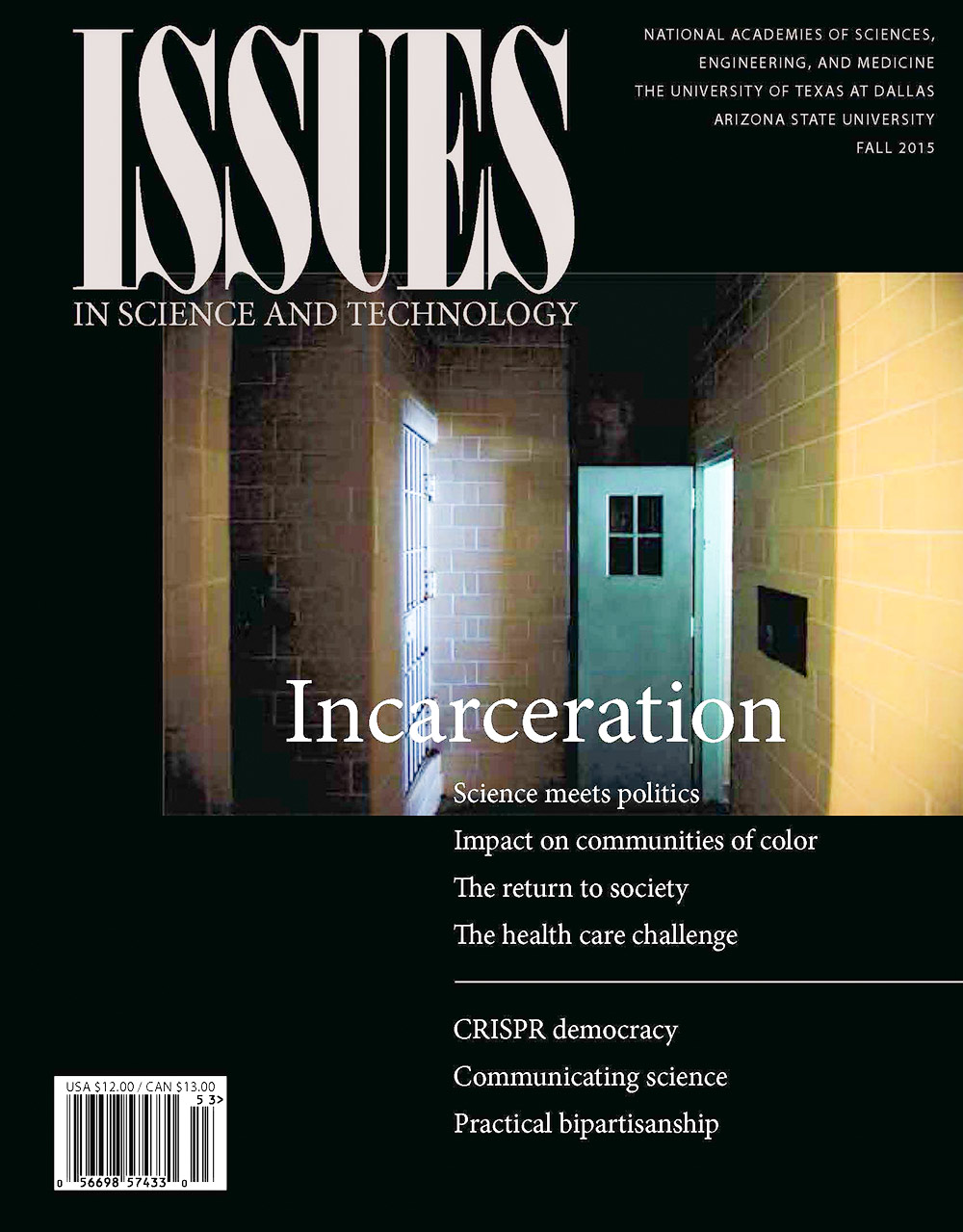
Issues in Science and Technology is the award-winning journal of the National Academy of Sciences, National Academy of Engineering, Institute of Medicine, The University of Texas at Dallas and Arizona State University.
According to the latest edition of Issues in Science and Technology, a bipartisan consensus is growing in Congress on the need to reform U.S. incarceration policy. The ideological rationales for supporting reform vary, but all factions rely on the same research to support their case.
The fall issue includes four feature articles by experts that explain the failure of current policies and practices to achieve their desired goals, the unintended detrimental effects on minority communities, the implications for public health, and the need to better manage the transition of former prisoners back into their communities.
Some of the long-term trends in U.S. incarceration:
- From 1973 to 2009, U.S. state and federal prison populations increased from about 200,000 to 1.5 million. An additional 700,000 men and women are being held in local jails.
- This increase occurred during a period when there was no significant rise in the level of crimes committed.
- The U.S. incarceration is five to 10 times higher than rates in Western Europe and other democracies.
- In 2010, the incarceration rate for African-Americans was six times higher than that of non-Hispanic whites. For Hispanics, it was three times greater than that of non-Hispanic whites.
- More than 2 million U.S. children have fathers in prison.
These figures are surprising because there was no social science evidence to justify the changes in U.S. policy that led to the prison population increase nor is there evidence that this has deterred criminal behavior.
The articles in this issue dig deeper to understand what is happening behind these national statistics. How do states and cities differ in their approaches to criminal behavior, and are there best practices that could be adopted elsewhere? What happens to people when they complete their prison sentences? What are the effects of incarceration on the mental and physical health of prisoners and their home communities?
Issues in Science and Technology is the award-winning journal of the National Academy of Sciences, National Academy of Engineering, Institute of Medicine, The University of Texas at Dallas and Arizona State University.